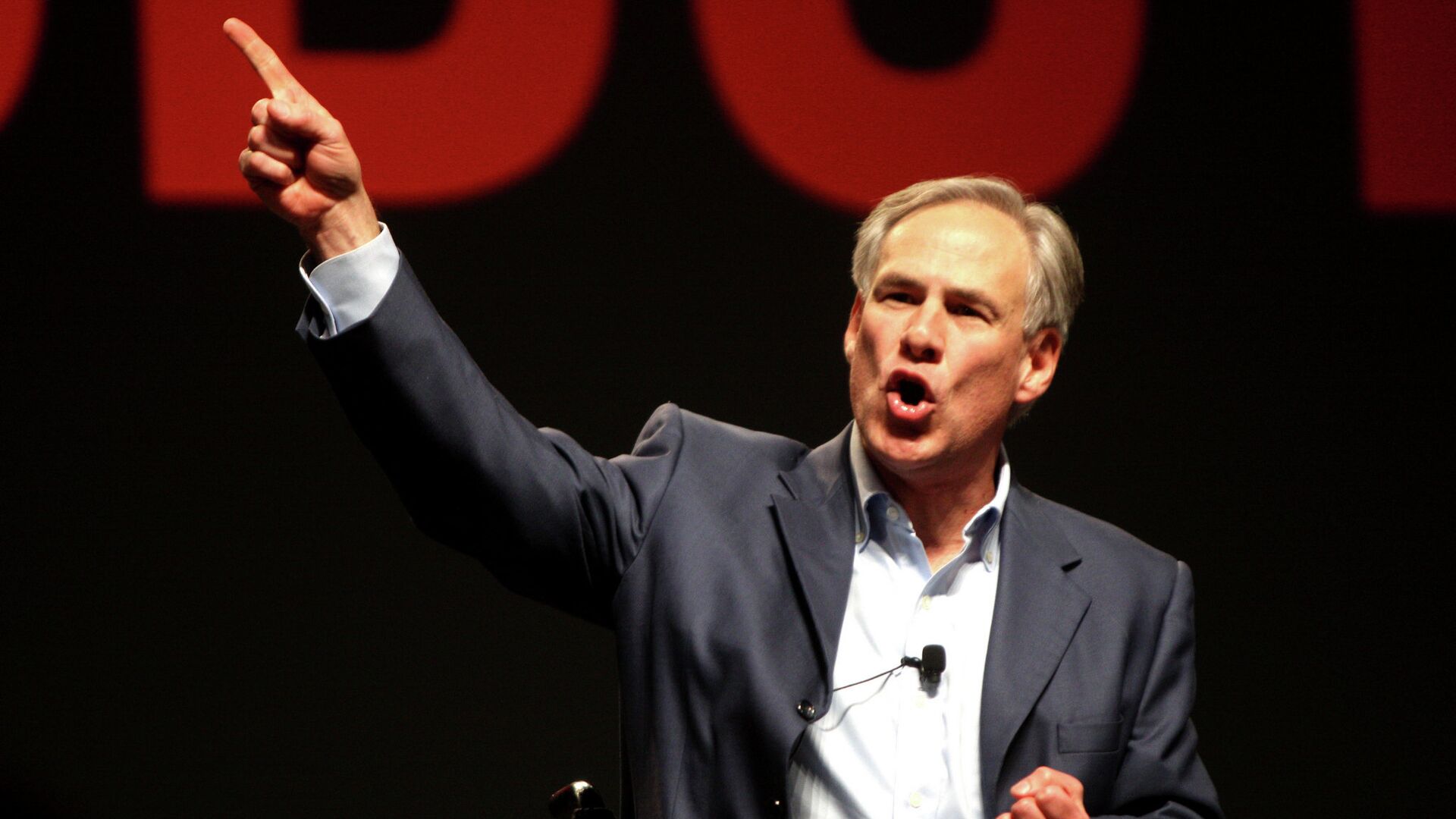https://sputnikglobe.com/20210907/texas-governor-abbott-signs-republican-voting-restriction-bill-into-law-1088857459.html
Texas Governor Abbott Signs Republican-Backed Voting Restrictions Bill Into Law
Texas Governor Abbott Signs Republican-Backed Voting Restrictions Bill Into Law
Sputnik International
The GOP touted the bill as legislation that would protect election integrity, while Democrat opponents have slammed it as an attempt to undermine the voting... 07.09.2021, Sputnik International
2021-09-07T16:26+0000
2021-09-07T16:26+0000
2024-03-11T10:57+0000
texas
voting rights
voting reform
us
election
https://cdn1.img.sputnikglobe.com/img/102167/89/1021678905_0:107:2048:1259_1920x0_80_0_0_9041b70444635bd686a61d59248d9ecc.jpg
On Tuesday, Texas Governor Greg Abbott signed a Republican-backed voting restrictions bill, also known as SB1, into law.The ceremony took place in the East Texas city of Tyler, finalising the implementation of new election restrictions in the Lone Star state, among them the limitation of drive-thru and mail-in voting. Abbott was joined by Senator Bryan Hughes, Lieutenant Governor of Texas Dan Patrick, and several other lawmakers. The Republicans have described the bill as legislation that "makes it easy to vote and hard to cheat".However, SB1 is facing backlash from some Democrat opponents, who view the legislation as an attempt to undermine the voting rights of minorities and people of colour. The bill has already faced several lawsuits, including from the American Civil Liberties Union, which accused Texan GOP lawmakers of violating the federal Voting Rights Act.US Vice President Kamala Harris has commented on the signing, saying that the bill is "one of the most restrictive in the nation".The legislation envisages limiting early voting hours, banning public officials from sending unsolicited absentee ballot applications, providing an easier path to overturn an election based on fraud allegations, and broadening access for poll watchers at locations where election activity takes place. Election judges who obstruct them could face criminal penalties under SB1.In response to the GOP-backed voting restrictions, congressional Democrats are urging for the passage of new federal voting rights protections, but face opposition from Senate Republicans.Texas is among at least 18 other states that have introduced voting restrictions following the 2020 presidential election, after former US President Donald Trump, refusing to concede defeat, made claims about "voter fraud", claiming that the Democrats had "stolen" the election.
texas
Sputnik International
feedback@sputniknews.com
+74956456601
MIA „Rossiya Segodnya“
2021
News
en_EN
Sputnik International
feedback@sputniknews.com
+74956456601
MIA „Rossiya Segodnya“
Sputnik International
feedback@sputniknews.com
+74956456601
MIA „Rossiya Segodnya“
texas, voting rights, voting reform, us, election
texas, voting rights, voting reform, us, election
Texas Governor Abbott Signs Republican-Backed Voting Restrictions Bill Into Law
16:26 GMT 07.09.2021 (Updated: 10:57 GMT 11.03.2024) The GOP touted the bill as legislation that would protect election integrity, while Democrat opponents have slammed it as an attempt to undermine the voting rights of minorities.
On Tuesday, Texas Governor Greg Abbott
signed a Republican-backed voting restrictions bill, also known as SB1, into law.
The ceremony took place in the East Texas city of Tyler, finalising the implementation of new election restrictions in the Lone Star state, among them the limitation of drive-thru and mail-in voting.
Abbott was joined by Senator Bryan Hughes, Lieutenant Governor of Texas Dan Patrick, and several other lawmakers. The Republicans have described the bill as legislation that "makes it easy to vote and hard to cheat".
However,
SB1 is facing backlash from some Democrat opponents, who view the legislation as an attempt to undermine the voting rights of minorities and people of colour. The bill has already faced several lawsuits, including from the American Civil Liberties Union, which accused Texan GOP lawmakers of violating the federal Voting Rights Act.
US Vice President Kamala Harris has commented on the signing, saying that the bill is "one of the most restrictive in the nation".
The legislation envisages limiting early voting hours, banning public officials from sending unsolicited absentee ballot applications, providing an easier path to overturn an election based on fraud allegations, and broadening access for poll watchers at locations where election activity takes place. Election judges who obstruct them could face criminal penalties under SB1.
In response to the GOP-backed voting restrictions, congressional Democrats are urging for the passage of new federal voting rights protections, but face opposition from Senate Republicans.
Texas is among at least 18 other states that have introduced voting restrictions following the 2020 presidential election, after former US President Donald Trump, refusing to concede defeat, made claims about "voter fraud", claiming that the Democrats had "stolen" the election.

